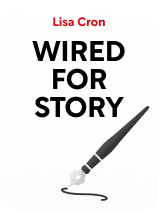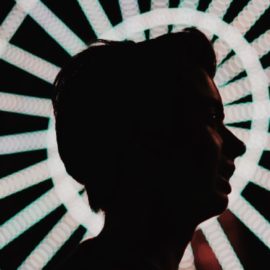

This article is an excerpt from the Shortform book guide to "Wired for Story" by Lisa Cron. Shortform has the world's best summaries and analyses of books you should be reading.
Like this article? Sign up for a free trial here.
When a reader starts to read your story, what are they looking for? What must you give them if you want them to keep reading?
Lisa Cron asserts that stories satisfy neurological needs that humans evolved over millennia. So, good writers understand these needs and satisfy them as they craft their stories. Arguably, the primary thing that readers require is a good reason to keep reading past the first page.
Read more to discover how to hook a reader by fulfilling their immediate need.
How to Hook a Reader
As soon as the reader begins your story, they start looking for the answers to three major questions: 1) Who’s the story about? 2) What’s the story about? 3) What’s at stake here? If the answer to any of these three questions is missing, it doesn’t matter how beautiful your prose is; the reader will not be interested in your story. Cron’s advice for how to hook a reader is to answer these questions quickly—on the first page, or even in the very first sentence. Then, you can take your time presenting the rest of the details because your reader knows what to anticipate.
The answers to these questions give the reader context for how to understand everything they’re about to read, which, according to neuroscientific research, is how they determine meaning, or the “why” behind every piece of information. Answering these “why” questions is critical to do because humans have a natural curiosity about why any given piece of information is significant or useful to us, and having that curiosity sated is what keeps us engaged with what we’re reading.
For instance, we don’t just want to know that the protagonist is getting a divorce; we want to know the specific reasons why they’re getting a divorce so we can understand how the divorce will impact the protagonist and how it might affect what they’re going to do next.
| Hooking the Audience in Different Media A good hook is essential for any type of writing, but it sometimes looks different in different media. In journalism, the opening hook is called a lead or lede, and it may take the form of a relevant anecdote, an important statistic, or the basic facts of the article. Regardless of the type of lede, it should provide the reader with an idea of what the article is going to be about. In media like screenwriting, you can’t always explicitly answer questions right away since you’re telling the story visually, but movies and shows should always have a logline, or a one-sentence hook that introduces all the important elements the viewer needs to know for context, including the protagonist, the conflict, and the goal or stakes. A logline should ideally hook a reader before they even play the film or episode. After that, experts suggest fully introducing elements like the protagonist, the setting, and the genre within the first 10 pages. Whatever medium you’re writing in, your hook is what makes the audience decide if they’re going to devote their time and energy to what you’ve written, and the more quickly and concisely you can give them the important foundational details, the more likely they are to stick with your piece. |

———End of Preview———
Like what you just read? Read the rest of the world's best book summary and analysis of Lisa Cron's "Wired for Story" at Shortform.
Here's what you'll find in our full Wired for Story summary:
- How humans have a neurological need for stories
- The formula that the human brain expects to encounter in a story
- How to build a protagonist that engages your reader






